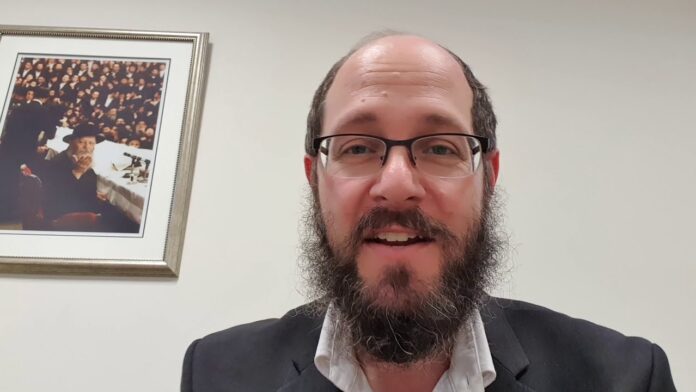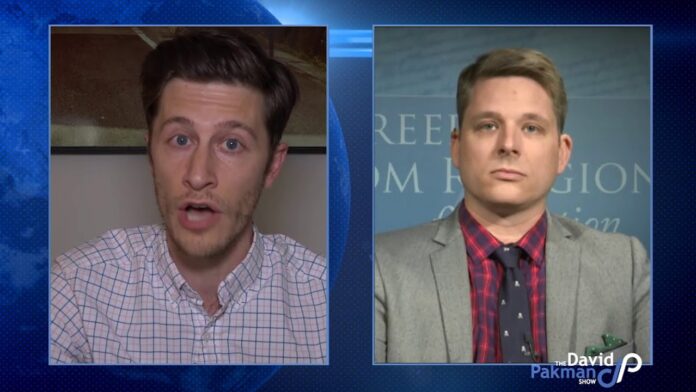Legends, myths, and oral traditions have been an integral part of human history, shaping our understanding of the world and our place in it. These timeless tales, passed down from generation to generation, offer a glimpse into the rich tapestry of human experience, revealing the dreams, fears, and aspirations of diverse cultures. Delving into the realm of folklore and mythology, we uncover a vast and enchanting landscape, where the boundaries between the mundane and the mystical blur, and the power of storytelling transcends the constraints of time and space.
Introduction
Folklore and mythology have captivated the human imagination for millennia, serving as both a reflection of our shared experiences and a powerful tool for understanding the complexities of our world. These narratives, rooted in the collective consciousness of diverse communities, have the ability to transport us to realms of wonder, illuminating the richness and diversity of human culture. Through the exploration of these timeless traditions, we gain a deeper appreciation for the intricate tapestry of human civilization, and the profound ways in which stories shape our understanding of ourselves and our place in the cosmos.
Definition of Folklore and Mythology

Folklore and mythology are distinct yet intertwined concepts that encompass the rich tapestry of traditional stories, beliefs, and practices passed down within a culture. Folklore refers to the traditional oral, customary, and material expressions of a particular group, often reflecting the customs, beliefs, and everyday experiences of a community. Mythology, on the other hand, is a collection of myths, or traditional stories, that explain the origins, beliefs, and cultural practices of a society, often with supernatural or divine elements.
Understanding Folklore
Folklore is a broad term that encompasses a wide range of cultural expressions, including:
- Oral Traditions: Stories, legends, folktales, and myths passed down through generations by word of mouth.
- Customs and Rituals: Traditional practices, beliefs, and celebrations that are an integral part of a community’s way of life.
- Material Culture: Crafts, art, and other tangible expressions of a culture’s beliefs and values.
Folklore is often deeply rooted in the lived experiences of a community, reflecting the unique perspectives, values, and worldviews of the people who create and transmit it.
Defining Mythology
Mythology, on the other hand, is a collection of stories that attempt to explain the origins of the world, the nature of the divine, and the human condition. These narratives often feature supernatural beings, deities, and events that transcend the boundaries of the natural world. Mythology is closely tied to a culture’s religious and spiritual beliefs, serving as a means of preserving and transmitting these fundamental aspects of a society.
History and Origins

The origins of folklore and mythology can be traced back to the earliest human civilizations, where storytelling and the oral tradition played a crucial role in the dissemination of knowledge, beliefs, and cultural practices. As communities evolved and spread throughout the world, these narratives adapted and diversified, reflecting the unique experiences and perspectives of the people who created and passed them down.
The Oral Tradition
The oral tradition has been the primary means of transmitting folklore and mythology for much of human history. Before the advent of written language, stories, legends, and myths were passed down through generations by word of mouth, often taking on new forms and interpretations as they were retold. This fluid and dynamic nature of oral traditions allowed for the preservation and evolution of cultural knowledge, ensuring that these timeless tales remained relevant and responsive to the changing needs and experiences of the communities that embraced them.
The Emergence of Written Traditions
As civilizations developed and writing systems emerged, the tradition of storytelling began to be recorded, allowing for the preservation and dissemination of folklore and mythology on a larger scale. The transition from oral to written traditions, however, did not entirely replace the former, as many cultures continued to maintain a strong oral storytelling tradition alongside the written word. This interplay between the two modes of transmission has resulted in a rich tapestry of cultural expressions, where the written word and the spoken word work in tandem to preserve and share the wisdom and experiences of diverse communities.
The Influence of Religion and Spirituality
Folklore and mythology have often been closely intertwined with the religious and spiritual beliefs of a culture. Many of the stories and narratives that make up these traditions have their roots in the belief systems and worldviews of the people who created them. The divine, supernatural, and sacred elements that are commonly found in myths and legends are a reflection of the deep-seated spiritual and religious convictions that have shaped the lives and experiences of human communities throughout history.
Different Types of Folklore and Mythology
Folklore and mythology encompass a vast and diverse array of narratives, customs, and beliefs, each reflecting the unique cultural, geographical, and historical contexts in which they were born. From the epic tales of ancient civilizations to the local legends of indigenous communities, the richness and diversity of these traditions are a testament to the boundless creativity and ingenuity of the human spirit.
Epics and Hero Myths
One of the most well-known and influential forms of folklore and mythology are the epics and hero myths that have captivated audiences for millennia. These grand narratives, often spanning generations and chronicling the deeds of larger-than-life figures, serve as a means of preserving and transmitting the cultural values, beliefs, and histories of the societies that created them. Examples of such epic tales include the Gilgamesh of Mesopotamia, the Mahabharata of India, and the Odyssey of ancient Greece.
Folktales and Legends
Folktales and legends are another prevalent form of folklore, often rooted in the everyday experiences and beliefs of a particular community. These stories, which can range from fantastical tales of supernatural beings to cautionary tales of moral lessons, serve to entertain, educate, and enlighten audiences, while also reflecting the unique worldviews and cultural identities of the people who tell them. From the trickster tales of Native American cultures to the ghost stories of East Asian traditions, the diversity of folktales and legends is a testament to the richness of human imagination and storytelling.
Myths of Origin and Creation
Myths of origin and creation are a fundamental aspect of folklore and mythology, as they seek to explain the beginnings of the world, the cosmos, and the human condition. These narratives often feature divine or supernatural elements, weaving together the threads of belief, spirituality, and the desire to understand the mysteries of existence. From the creation myths of indigenous cultures to the origin stories of major world religions, these timeless tales continue to captivate and enlighten audiences, offering insights into the shared human experience.
Ritual and Ceremonial Traditions
Folklore and mythology are also closely tied to the ritual and ceremonial practices of a culture, with many customs and beliefs finding their expression in the performance of sacred rites and communal celebrations. These traditions, which can range from religious ceremonies to seasonal festivals, serve to reinforce the shared identity and values of a community, while also providing a means of connecting with the spiritual and supernatural realms that are often central to the mythologies of a people.
Folk Art and Material Culture
Folklore and mythology are not limited to the realm of storytelling; they also find expression in the material culture of a community, from the creation of intricate handicrafts to the construction of sacred spaces and monuments. These tangible manifestations of a culture’s beliefs, values, and worldviews serve as a physical embodiment of the narratives and traditions that have been passed down through generations, offering a deeper understanding of the rich tapestry of human creativity and ingenuity.
Cultural Significance
Folklore and mythology play a vital role in the cultural identity and expression of communities around the world. These timeless traditions serve as a means of preserving and transmitting the unique experiences, beliefs, and values that define a people, while also offering a lens through which to understand the shared human experience.
Preservation of Cultural Heritage
Folklore and mythology are often seen as a means of preserving the cultural heritage of a community, serving as a repository of traditional knowledge, beliefs, and practices that might otherwise be lost to the passage of time. By passing down these stories, rituals, and customs from one generation to the next, communities are able to maintain a strong sense of identity and belonging, ensuring that the unique perspectives and experiences of their people remain a vital part of the human tapestry.
Reflection of Cultural Values
The narratives and traditions that make up the folklore and mythology of a culture often serve as a reflection of the values, beliefs, and worldviews that are central to the identity of a community. These stories and practices can provide insight into the social, political, and spiritual structures that have shaped the lives of the people who created them, offering a window into the complexities of human civilization and the diverse ways in which different cultures have sought to make sense of the world around them.
Transmission of Cultural Knowledge
Folklore and mythology have long served as a means of transmitting cultural knowledge and wisdom from one generation to the next. Through the telling of stories, the passing down of traditions, and the preservation of material culture, these timeless narratives and practices have played a crucial role in the education and socialization of individuals, ensuring that the accumulated knowledge and experiences of a community continue to be relevant and meaningful in the modern world.
Fostering Community Cohesion
The shared experience of engaging with folklore and mythology can serve as a powerful tool for fostering community cohesion and solidarity. By participating in the rituals, celebrations, and storytelling traditions of a culture, individuals are able to connect with the shared history, beliefs, and values that define the identity of their community, strengthening the bonds that tie them together and reinforcing a sense of belonging and collective identity.
Universal Human Themes
Despite the diverse cultural contexts in which they are found, many of the themes and narratives that make up the folklore and mythology of different societies share a common thread, reflecting the universal human experiences and concerns that transcend the boundaries of time and space. From the archetypal hero’s journey to the exploration of the human condition, these timeless tales offer a means of connecting with the shared experiences and aspirations of people around the world, fostering a deeper understanding and appreciation of the diverse tapestry of human civilization.
Comparison between Folklore and Mythology
While folklore and mythology are often closely intertwined, there are some key distinctions between the two concepts that are worth exploring. Understanding the nuances and differences between these two rich traditions can provide a deeper appreciation for the complexities and diversity of human cultural expression.
Origins and Transmission
One of the primary differences between folklore and mythology lies in their origins and modes of transmission. Folklore is often rooted in the everyday experiences and customs of a particular community, and is typically passed down through oral traditions, material culture, and customary practices. Mythology, on the other hand, is more closely associated with the spiritual and religious beliefs of a society, and is often transmitted through sacred texts, ritual practices, and formal educational channels.
Scope and Scale
Another key distinction between folklore and mythology is the scope and scale of the narratives and traditions that make up each. Folklore is often more localized and specific to a particular community or region, reflecting the unique experiences and perspectives of the people who create and transmit it. Mythology, however, tends to have a broader, more universal appeal, often spanning multiple cultures and civilizations, and addressing fundamental questions about the nature of the divine, the origins of the world, and the human condition.
Relationship to the Supernatural
The role of the supernatural and the divine is another area where folklore and mythology diverge. While both traditions often feature supernatural elements and beings, the relationship between the natural and the supernatural is often more fluid and ambiguous in folklore, with the boundaries between the two realms being more porous and permeable. In mythology, on the other hand, the supernatural and the divine are often more clearly defined and central to the narratives and beliefs that make up the tradition.
Preservation and Transformation
The ways in which folklore and mythology are preserved and transformed over time also differ in significant ways. Folklore is often characterized by a more fluid and adaptable nature, with stories, customs, and practices evolving and changing as they are passed down through generations. Mythology, in contrast, tends to be more formally codified and resistant to dramatic transformation, with the core narratives and beliefs often remaining relatively stable over time, even as they are interpreted and reinterpreted in different cultural contexts.
Relationship to Empirical Knowledge
Finally, the relationship between folklore and mythology and empirical knowledge is worth noting. Folklore is often grounded in the practical, lived experiences of a community, and may draw upon observed natural phenomena and practical wisdom to inform its narratives and customs. Mythology, on the other hand, often operates in a more abstract, metaphysical realm, seeking to explain the origins and workings of the world through the lens of the divine and the supernatural, rather than through the lens of empirical observation and scientific inquiry.
Modern Interpretations
As the world has become increasingly interconnected and globalized, folklore and mythology have undergone a remarkable transformation, with these timeless traditions being reinterpreted, reimagined, and adapted to meet the needs and concerns of modern audiences. From the ways in which these narratives and beliefs are being preserved and transmitted in the digital age to the ways in which they are being used to explore contemporary social and political issues, the relevance and significance of folklore and mythology in the modern world cannot be overstated.
Preservation and Transmission in the Digital Age
The rise of digital technologies and the internet has had a profound impact on the preservation and transmission of folklore and mythology. The ability to record, archive, and disseminate these narratives and traditions online has allowed for a greater degree of accessibility and exposure, ensuring that these timeless tales continue to be shared and celebrated by audiences around the world. At the same time, the digital realm has also given rise to new forms of folklorist expression, such as the creation of online communities, the crowdsourcing of traditional knowledge, and the use of social media platforms to amplify the voices and perspectives of marginalized communities.
Reinterpreting Folklore and Mythology
As the world has become increasingly interconnected, the ways in which folklore and mythology are being reinterpreted and reimagined have also evolved. Contemporary artists, writers, and scholars have been drawn to the rich symbolism and universal themes that permeate these timeless traditions, using them as a lens through which to explore and critique the social, political, and cultural issues of the modern world. From the incorporation of mythological elements in popular media to the use of folklore as a means of advocating for social justice and environmental conservation, these timeless narratives continue to be a source of inspiration and resonance for people across the globe.
Exploring Contemporary Themes
The enduring relevance of folklore and mythology in the modern world is also evident in the ways in which these traditions are being used to explore contemporary social and political issues. By drawing upon the rich symbolism and universal themes that are woven into the fabric of these narratives, scholars, activists, and community members are able to shed light on pressing concerns such as identity, inequality, and environmental degradation, using the power of storytelling to raise awareness and inspire action.
Bridging Cultures and Fostering Dialogue
In an increasingly interconnected world, folklore and mythology have also played a crucial role in bridging the gaps between diverse cultures and fostering meaningful dialogue. By sharing and engaging with the narratives and traditions of other communities, individuals and organizations are able to gain a deeper understanding of the unique perspectives and experiences that define the human experience, cultivating empathy, respect, and a greater appreciation for the richness and diversity of human civilization.
Conclusion
Folklore and mythology are not merely relics of the past, but living, breathing traditions that continue to shape the way we understand and engage with the world around us. These timeless narratives and beliefs, passed down through generations, offer a window into the rich tapestry of human experience, shedding light on the dreams, fears, and aspirations that have defined the human condition throughout history.
As we navigate the complexities of the modern world, the enduring relevance and significance of folklore and mythology cannot be overstated. These traditions continue to serve as a means of preserving cultural heritage, fostering community cohesion, and exploring the universal themes that connect us all as human beings. Whether through the sharing of stories, the preservation of material culture, or the reinterpretation of these timeless tales in the digital age, the power of folklore and mythology to captivate, enlighten, and inspire remains as vital today as it has been for millennia.
As we continue to grapple with the challenges and uncertainties of the 21st century, the wisdom and insights offered by the rich tapestry of folklore and mythology can serve as a guiding light, reminding us of the enduring resilience and creativity of the human spirit, and the boundless possibilities that arise when we embrace the diversity and complexity of the human experience.









